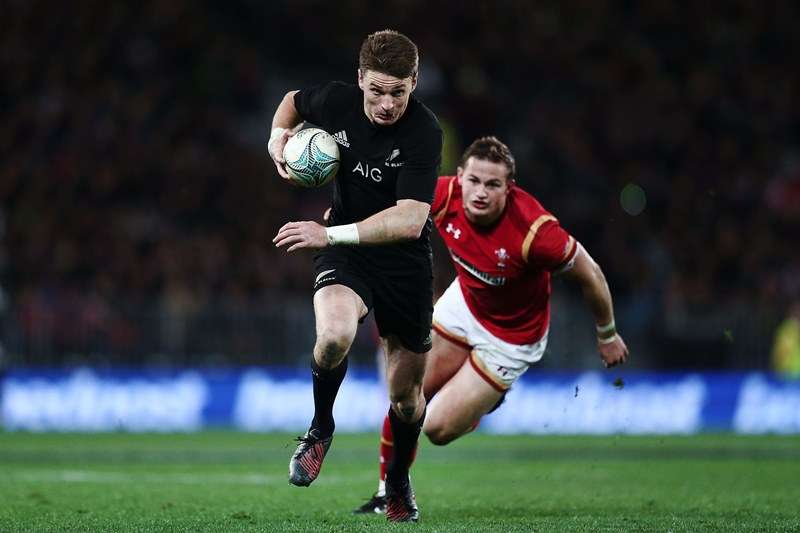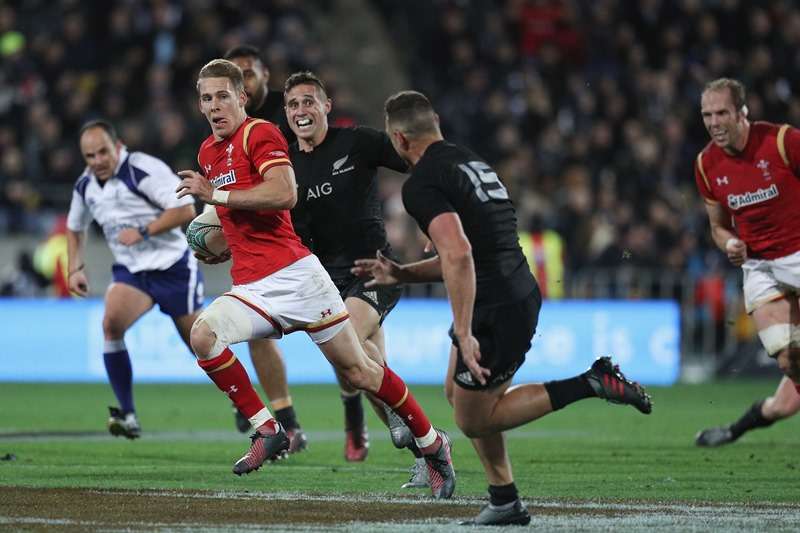
ONE of the messages for the 2017 Lions that reverberates loudest from the 2016 England tour of Australia was don’t write yourself off with a defeatist approach before you get started. Eddie Jones may have put himself out of the running as a Lions coach, or consultant, in New Zealand next summer, but his zero tolerance of the get-your-excuses-in-early mentality of tours coming at the end of ‘a long, hard season’ will be as essential for the Lions as it was to the Red Rose clean sweep of the Wallabies.
Jones was never anything less than respectful of Australia, and their home record, but he was also unequivocal that his team had the ability and the mental resilience to win the series. New Zealand’s record demands even greater respect given that the double world champions are now 40 Tests unbeaten at home following their 3-0 victory over Wales.
However, what no squad hoping to be successful in the Southern Hemisphere can afford is anything less than absolute conviction that it can prevail – and if that applies to Lions tours of South Africa and Australia, it counts double when New Zealand is the destination.
Any prospective campaign there is often made to appear even more daunting by the regard in which New Zealand rugby is held throughout the world. This applies especially in Britain, Ireland and France, where the sustained excellence of the All Blacks has won them a legion of admirers – to the extent that sometimes the plaudits showering down dampen the burning desire to beat them.
The speed with which New Zealand have adapted following the departure of such legendary players as Richie McCaw, Dan Carter, Ma’a Nonu, Conrad Smith, Tony Woodcock and Keven Mealamu after the 2015 World Cup triumph, has reinforced that admiration.
New Zealand’s competitiveness in whitewashing Wales has been held up already as proof that they have managed a seamless transition in which they are as potent now as they were in winning the World Cup eight months ago, with McCaw and Carter at the helm.
I don’t buy that. Without wishing to minimise what coach Steve Hansen and his new captain, Kieran Read, achieved by regenerating New Zealand sufficiently to beat Wales three times in succession last month, Warren Gatland’s outfit seemed well short of the conviction and conditioning required to rewrite history by winning on Kiwi soil for the first time.
Analysis of the series shows that Wales did not have the firepower to put a reconditioned New Zealand side under pressure on a regular basis, allowing it to bed-in and build confidence rather than shaking it to the core. In that respect, with Gatland likely to be reappointed as 2017 Lions head coach following his success in 2013, it was a missed opportunity.
The Welsh were in the race for an hour in the first Test before being swamped by three New Zealand tries in the final quarter, and they were again in the hunt up until half-time in the second Test before leaking four second-half tries in quick succession. In the third Test they were overwhelmed.
By comparison with England – whose defence in the first and last Tests against Australia was also far too porous – their line-speed was slow, with some players lacking the snap to get up off the ground quickly enough to tackle again. While England were frequently pulled out of shape, especially out wide, that was a charge that could not be levelled at them.
This meant that Australia were never allowed to settle like New Zealand were. In particular, the England forwards played with a physicality that wore down the Wallabies in a way that Wales were unable to replicate against the All Blacks.

While Liam Williams and Rhys Webb were outstanding resistance fighters in the Welsh backline, showing the All Blacks that they do not have a patent on brilliant counter-attacking skills, most of their team-mates failed to rise to the challenge in the same way.
With the notable exceptions of No.8 Taulupe Faletau and hooker Ken Owens the Welsh pack misfired in the loose, and although it functioned adequately on its own set-piece ball, it failed to put New Zealand under any duress.
That’s why in Wellington a back-row move from a New Zealand scrum deep in the Welsh 22 saw Read pick up at the base and link with Aaron Smith before the scrum-half’s pass let Waisake Naholo stroll in.
The line-out was another area where Wales failed to inconvenience the All Blacks, with few punishing drives, and three lost throws when the first Test at Eden Park was in the balance.
In the close quarter exchanges it was invariably the All Blacks whose aggression, urgency and contact skills put them on the front foot, whether in attack or defence, and they punished a high percentage of the errors they squeezed out of Wales.
While no-one is suggesting that the All Blacks are anything less than a very good team which has minimised the loss of McCaw and company, none of this adds up to them being unassailable next summer, even if Sonny Bill Williams will be back in their lineup then.
The Lions should also be able to assemble a very good team, and we have picked one here from this summer’s England, Wales and Ireland tours of the Southern Hemisphere which reflects that. It has the power, poundage and mobility up front to do damage, and a backline with the wit, power, and pace to give New Zealand coach Steve Hansen plenty to ponder.


As for mentality, it’s extremely important for Lions players to recognise what they face. The first thing they need to absorb is that the admiration British and Irish rugby has for the standards New Zealand set in terms of skill and fitness are not reciprocal. The Kiwis don’t rate you, and won’t – unless you beat them.
The 1971 Lions, which is the only British & Irish touring side to win a series in New Zealand, recognised that from the offset, and were implacable in their quest.
The second thing – as any of the 1971 Lions will vouch – is that any regard for the All Blacks should not extend to the lengths to which they are prepared to go to keep their record intact, particularly at home.
If anyone needs a reminder just take a look at the footage of the last Lions captain to New Zealand, Brian O’Driscoll, being drilled into the deck in an off-the-ball spear tackle by Tana Umaga and Mealamu. It resulted in a tour-ending shoulder dislocation in the opening minutes of the 2005 Test series.
























